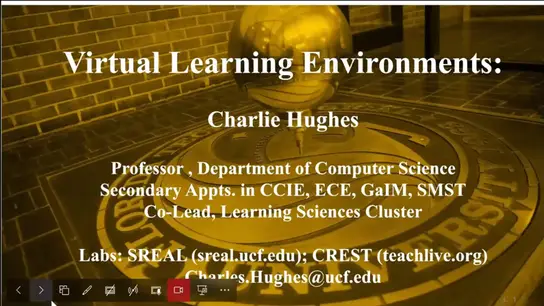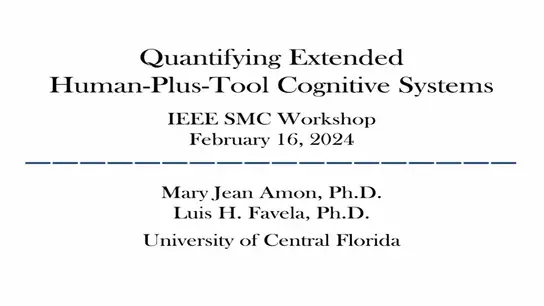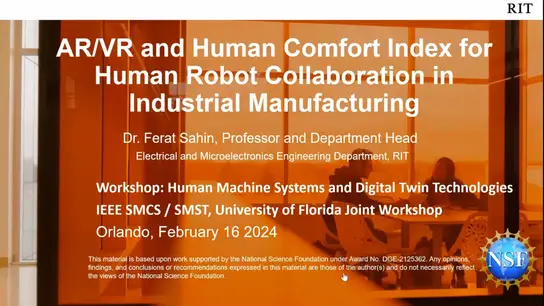-
Members: FreeSMCS
IEEE Members: $11.00
Non-members: $15.00Length: 00:12:04
16 Feb 2024
Robotic Guide Dog to Aid Visually Impaired Individuals Navigate Unfamiliar Areas
Dr. Crystal Maraj, School of Modeling Simulation and Training, the University of Central Florida (UCF)
A person smiling at camera
Description automatically generated Dr. Crystal S. Maraj is a Research Assistant Professor employed by the School of Modeling Simulation and Training (SMST), Institute for Simulation and Training (IST) at the University of Central Florida (UCF). She has attained her Bachelor’s degree in Psychology, as well as her M.S. and Ph.D. in Modeling and Simulation (M&S) from UCF. Dr. Maraj has worked for the Simulation & Training Technology Center (STTC) as an experimental psychologist on medical simulation technology projects as well as developing and implementing empirically based research experiments for Simulation-Based Training (SBT) platforms. Most recently, she is leading the Realistic Assessment of Performance in Devices (RAPID) lab that focuses on the evaluations of VR/AR technologies assessing capabilities, deficiencies, specifications, costs, maturity, and risks. She also serves at the Faculty Advisor to the Robotics Club of Central Florida and lead STEM-based initiatives for IST. Dr. Maraj has published research findings to inform the scientific and training communities to improve trainee performance and training system utility.
Abstract:
This research investigates the implementation of a robotic guide dog to aid people with visual impairments. The study specifically focuses on the human participant’s subjective attitude towards and opinions about the robotic dog. The feasibility of a robotic guide dog is partially determined by how humans will react to the idea of such technology being implemented in daily activity. The study will require the participants to complete three walks, guided by Tape measure, through set paths of varying difficulty while blindfolded to simulate visual impairment. Subjective assessment will involve pre- and post-test surveys to gauge human attitudes toward the robot. This effort offers an understanding of human-robot interaction, improving the robotic guide dog framework and proposing a modern alternative for assisting the visually impaired.


